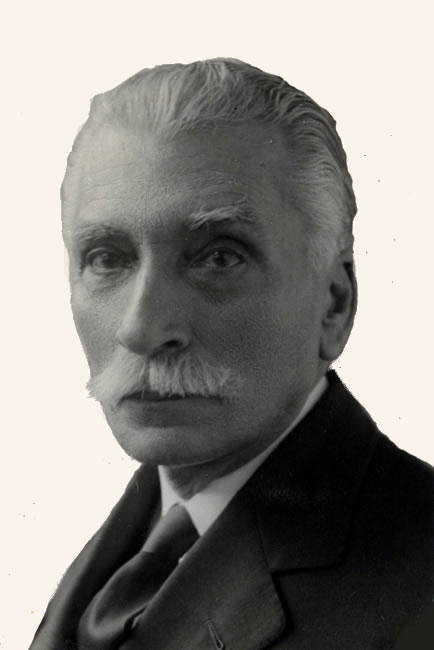Alfredo Baquerizo Moreno (Guayaquil, September 28, 1859 – New York City, March 20, 1951) was a prominent Ecuadorian politician, author, and intellectual figure of the early 20th century. Baquerizo Moreno excelled in various fields throughout his life. He displayed his artistic talents through his poetry, influenced by Spanish author Gustavo Adolfo Bécquer, and his novels, which showcased his imaginative storytelling. Baquerizo Moreno’s career in politics was equally impressive, serving as the President of Ecuador from 1916 to 1920. During his presidency, he implemented progressive reforms and prioritized social justice, advocating for the abolition of debt imprisonment and improving labor conditions. Baquerizo Moreno’s lasting contributions to literature and his dedication to public service have secured his place in Ecuadorian history as a multifaceted and influential figure.
Introduction
Alfredo Baquerizo Moreno, born on September 28, 1859, in Guayaquil, Ecuador, was a prominent Ecuadorian politician and author. He served as the President of the Republic of Ecuador from September 1, 1916, to August 31, 1920. Baquerizo Moreno was known for his contributions to literature, his oratory skills, and his political career. This essay explores his biography, presidency, and literary works, shedding light on his significant role in Ecuadorian history.
Artistic Inclinations and Distinguished Career
Baquerizo Moreno displayed his artistic inclinations from a young age, studying music at the National Conservatory and mastering the piano. His poems, reminiscent of Gustavo Adolfo Bécquer’s style, were characterized by irony and discerning taste. As a writer, Baquerizo Moreno authored a series of short novels with eccentric titles, which reflected his political thoughts. He was a distinguished lawyer and a corresponding member of the Spanish Language Academy. He excelled in the legal field, serving in high-ranking positions such as Vice President of the Republic and President of the Senate.
Known for his eloquence, Baquerizo Moreno was a renowned orator, and his presidency was marked by peace and tranquility. His approach to governance can be summarized by his statement, “One more bridge is one less abyss.” Besides his political career, Baquerizo Moreno held teaching positions at the Vicente Rocafuerte School and the University of Guayaquil. He also served as the Minister of Foreign Affairs, diplomatic envoy to Cuba and Colombia, and Ambassador to Peru.
Presidency
Baquerizo Moreno triumphed in the 1916 presidential elections, assuming office as the Constitutional President of Ecuador on September 1, 1916.
During his presidency, Baquerizo Moreno abolished the system of “concertaje” (a form of indentured labor) and debt imprisonment. He hired the Japanese bacteriologist Dr. Hideyo Noguchi to eradicate yellow fever, which had a devastating impact on the coastal regions of Ecuador.
On the international front, his administration oversaw the signing of the Muñoz Vernaza-Suárez Treaty, which established definitive boundaries between Colombia and Ecuador. However, Ecuador’s cession of a substantial territory in the Caquetá and Putumayo regions to Colombia, as outlined in the treaty, soured relations between the two countries. Additionally, Baquerizo Moreno’s decision to cede certain lands to Peru further displeased Ecuador.
During his presidency, Baquerizo Moreno initiated various infrastructure projects, including the construction of the Milagro-Naranjito highway, the Cayambe Hospital, and the Babahoyo Cavalry Barracks and Prison. He also promoted advancements in telecommunications, such as the establishment of a new telephone exchange in Quito and wireless telephony in Santa Elena. Notably, Baquerizo Moreno visited the Galapagos Islands, becoming the first president to do so, and founded Puerto Chico, now known as Puerto Baquerizo Moreno, on the island of San Cristobal.
Baquerizo Moreno’s presidency was characterized by a plutocratic approach combined with a humanitarian mindset. He granted amnesty to imprisoned debtors, restored internal peace in Ecuador by pacifying conflicts, and supported important social policies such as implementing an eight-hour workday and abolishing debt imprisonment. These reforms contributed to the gradual eradication of “concertaje,” a system that primarily affected the indigenous population in the highlands of Ecuador.
Literary Contributions
In addition to his political career, Baquerizo Moreno left a lasting legacy in literature. Fluent in Latin and French, he published poetry heavily influenced by Gustavo Adolfo Bécquer and wrote studies on Horace, revealing his preferences and opinions regarding classical literature. He also wrote numerous articles expressing his views as a member of the Liberal Party. Baquerizo Moreno authored four novels, including, “Titania y Luz” (1901), “El Señor Pengo” (1901), and “El Nuevo Paraíso: Comedia Fabulosa” (1910), and “Tierra Adentro: La Novela de un Viaje” (1937).
Conclusion
Alfredo Baquerizo Moreno was a multifaceted figure in Ecuadorian history. As a politician, he served as the President of Ecuador and held various high-ranking positions, contributing to the country’s development. Simultaneously, Baquerizo Moreno made significant contributions to literature, showcasing his talent as a poet, novelist, and essayist. His presidency was characterized by progressive reforms and a focus on social justice, aiming to improve the lives of the Ecuadorian people. Today, Baquerizo Moreno’s legacy endures as a testament to his dedication to both political leadership and artistic expression.
Works
Novels
- Titania y Luz, dos novelas, publicadas en El Globo de Guayaquil. 159 p.
- El Señor Pengo. Guayaquil 1901, 206 p.
- El Nuevo Paraíso: comedia fabulosa. Guayaquil 1910, 58 p.
- Tierra Adentro, la novela de un viaje. Quito, 1937, 108 p.6
Poetry
- Rumores del Guayas, poemario. Guayaquil, 1881.
- Ensayos Poéticos. Guayaquil 1882, 102 p.
- Amor y Patria, drama histórico. Guayaquil 1882.
- Sonata en Prosa, publicada en el Álbum Ecuatoriano.
Essays and articles
- El Cometa, artículos periodísticos.
- La Opinión Publica, artículos periodísticos.
- Memorias de Negocios Eclesiásticos, Quito 1902 (sobre las relaciones con la Santa Sede).
- Traducciones y ensayos sobre Horacio. Quito 1949, 69 p.
- De ayer y de hoy. Miscelánea en 173 p.

